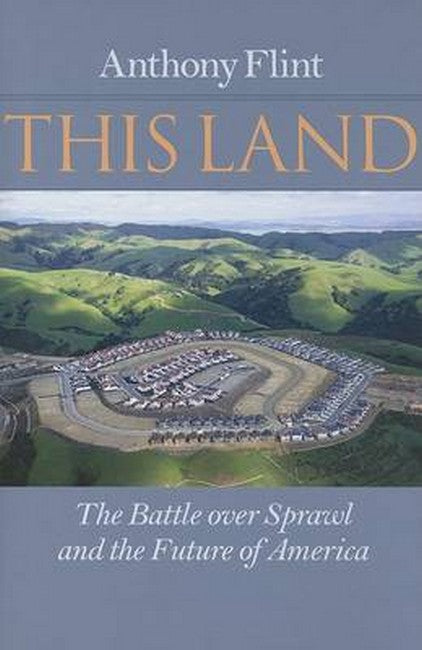Americans love their cars and loathe cities, and developers and politicians scramble to give them what they want. But what we are getting, argues Anthony Flint, is runaway sprawl: car-choked highways leading to a numbing sameness of subdivisions, strip malls, and office parks. We cling to the notion of a suburban utopia of bigger houses, safer neighborhoods, and better schools. Even as we decry interminable commutes and absurd gas prices, we resettle in boomburbs, new developments built at the outer reaches of established suburbs and a world away from city centers.In This Land, Flint explores the economic, cultural, and political forces that make it difficult for sensible growth to gain a foothold in the United States. A veteran journalist who covered planning, development, and housing for the Boston Globe, Flint brings the land battle to life through the stories of its most notorious soldiers. There's Andrés Duany, the brash and brilliant architectwho created Seaside in Florida (the backdrop of the film The Truman Show). And Anthony Palazzolo, a Sicilian immigrant and junk dealer, whose 1959 Rhode Island land investment turned into a four-decade-long wetlands battle that was fought all the way to the U.S. Supreme Court. Convinced that healthy development is as crucial to the country's future as health care and education, Flint wants to elevate the discourse on growth andsuggests that there is more than one version of the American dream. He argues that smart growth, though often portrayed as liberal, is profoundly conservative at its core and in its outcomes.Engaging, provocative, and occasionally startling, This Land gets to the heart of our national addiction to sprawl and offers realistic alternatives and real choices for how we live. 24 halftones.

